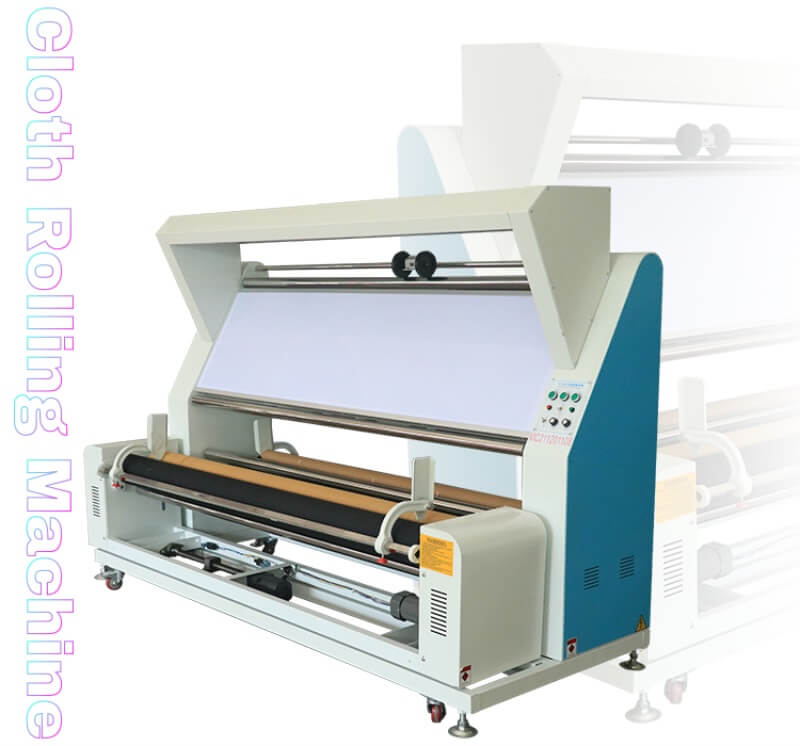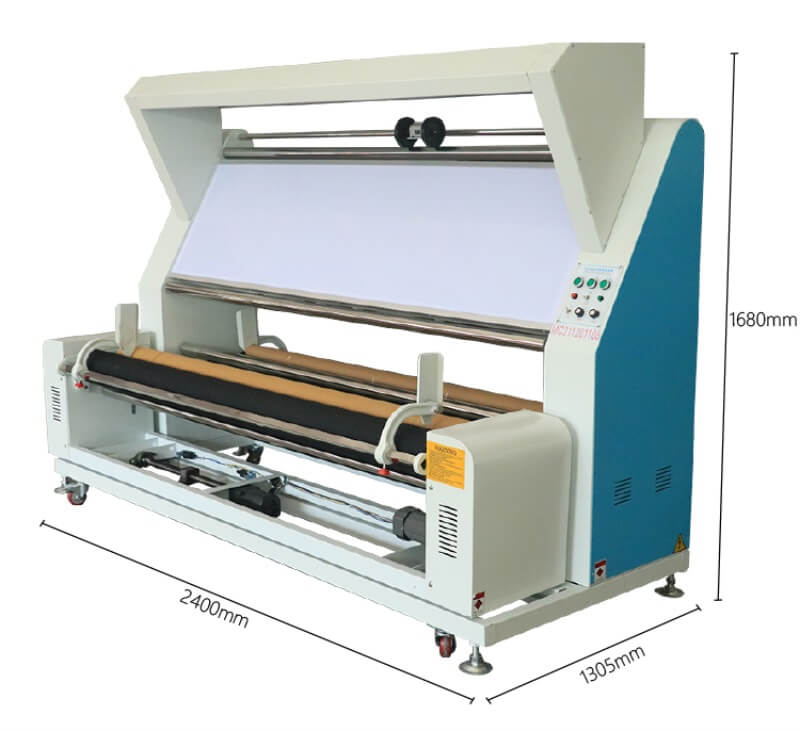A Fabric Rolling Machine is a piece of equipment used in the textile industry to roll up bolts of fabric into compact and easy-to-manage rolls. These machines can accommodate various types of fabric, including cotton, wool, silk, and synthetic materials.
The main function of a fabric rolling machine is to roll the fabric neatly and evenly, while applying adequate tension to ensure that the fabric stays in place without causing wrinkles or creases. This is particularly important for fabrics that are being transported or stored, as any wrinkles or folds in the fabric can be difficult to remove and may compromise the quality of finished products.

There are different types of fabric rolling machines available, ranging from manual machines for small-scale operations to fully automated machines for larger industrial applications. Some machines are designed to handle relatively narrow fabric rolls, while others can accommodate wider rolls up to several meters in width.
Most fabric rolling machines consist of a conveyor belt that feeds the fabric through the machine, while pressure rollers apply tension to the fabric and guide it onto the rolling mechanism. The finished rolls are then ejected from the machine, ready for transport or storage.
The use of fabric rolling machines can help textile manufacturers improve efficiency and reduce waste. By ensuring that fabric rolls are rolled in a controlled and consistent manner, these machines can help reduce the risk of damage to the fabric during transport and storage, as well as minimize any wasted material due to wrinkles or uneven rolling.

In summary, a Cloth Rolling Machine is a specialized piece of equipment used in the textile industry to roll fabric into neat and even rolls for transport and storage. These machines can help improve efficiency and reduce waste while ensuring that the fabric maintains its quality and appearance.